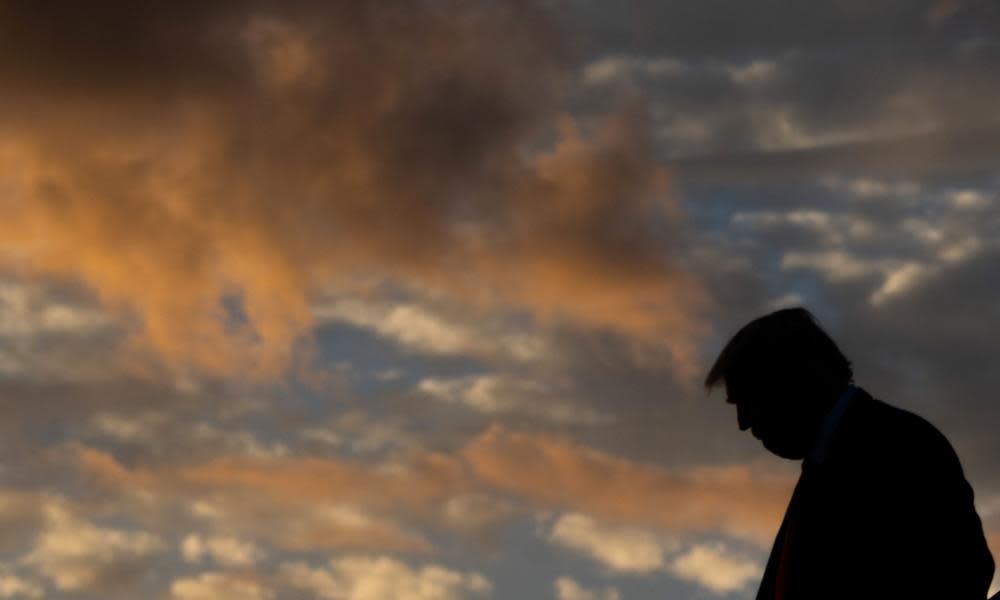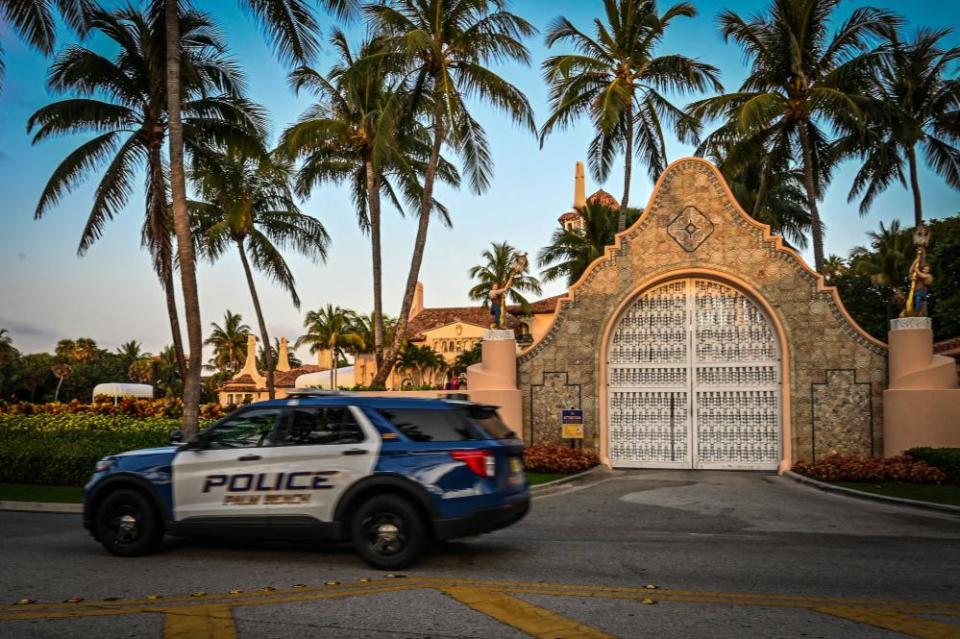Could Trump go to prison? Federal charges over classified docs show momentum is building

- Oops!Something went wrong.Please try again later.
- Oops!Something went wrong.Please try again later.
He really might be going to prison.
Donald Trump just became the first former president in American history to face federal criminal charges.
On Thursday night it emerged that Trump had been indicted for allegedly mishandling classified documents at his Mar-a-Lago estate in Florida.
On Friday the indictment was unsealed, revealing Trump is facing 37 criminal charges. He is due in court in Miami, Florida, on Tuesday afternoon after most likely surrendering himself to the FBI there.
Related: What is the Trump Mar-a-Lago case about and why is it significant?
It is often tempting to hype every Trump drama out of proportion and then lose sight of when something genuinely monumental has happened. Thursday night’s action by the justice department was genuinely monumental.
First, it raises the question: what was Trump doing with government secrets? It was reported last month that prosecutors obtained an audio recording in which Trump talks about holding on to a classified Pentagon document related to a potential attack on Iran.
Second, Trump could soon join a notorious club that includes Silvio Berlusconi of Italy, Nicolas Sarkozy and Jacques Chirac of France and Park Geun-hye and Lee Myung-bak of South Korea. All have been prosecuted and convicted of corruption in the past 15 years.
It’s Trump’s latest stress test for American democracy: can the state hold a former president accountable and apply the rule of law? There was a near miss for Richard Nixon, who could have faced federal charges over Watergate but was pardoned by his successor, Gerald Ford.

The White House knows it cannot afford to put a foot wrong. Joe Biden tries to avoid commenting on Trump’s myriad legal troubles. The attorney general, Merrick Garland, has also kept them at arm’s length by appointing Jack Smith as special counsel. It is Smith who investigated the Mar-a-Lago documents case.
Carl Tobias, a law professor at the University of Richmond in Virginia, says: “I don’t think he’s an overreaching prosecutor. He’s very rigorous and vigorous and independent and that’s what you want here and that’s what’s needed. I don’t think Merrick Garland had anything to do with it except appointing him.”
But what of the Republican party? Did it solemnly accept news of the indictment and call on Americans to allow justice to take its course? Did the Trump fever finally break, with party leaders denouncing the old demagogue and ushering in a new era?
It did not.
“It is unconscionable for a President to indict the leading candidate opposing him,” tweeted Kevin McCarthy, speaker of the House of Representatives. “I, and every American who believes in the rule of law, stand with President Trump against this grave injustice.”
Ron DeSantis, the governor of Florida and chief rival to Trump in the Republican presidential primary election, wrote on Twitter: “The weaponization of federal law enforcement represents a mortal threat to a free society … Why so zealous in pursuing Trump yet so passive about Hillary or Hunter?”
Senator JD Vance of Ohio described it as a “sham indictment”, Senator Bill Hagerty of Tennessee compared the US to a “banana republic” and Senator Josh Hawley of Missouri told Fox News, “if the president in power can just jail his political opponents, which is what Joe Biden is trying to do tonight, we don’t have a republic any more.”
Trump’s base will be equally unmoved. They will swallow his claim of “election interference” by his enemies. They will say both Biden and former vice-president Mike Pence were also caught with classified documents while forgetting – or wilfully ignoring – that Biden and Pence complied with the authorities while Trump allegedly obstructed justice.
They will also point to House Republicans’ increasingly noisy bribery allegations against Biden and his family (for which they have provided no evidence) as proof of a double standard. A Fox News interview with Congresswoman Marjorie Taylor Greene was accompanied by the chyron: “Trump indicted on same day Burisma scandal potentially confirmed” – the word potentially doing an awful lot of work.
In short, this is less a gamechanger than a replay of less than three months ago when Trump was charged by state prosecutors in New York with 34 felony counts of falsifying business records over a hush money payment to an adult film star. The former president saturated the news cycle, enjoyed a boost in the polls and forced his primary rivals to rally around him. He raised more than $4m in the 24 hours after the indictment became public.
The same rinse, repeat cycle seems likely if and when Trump is hit by even more charges over the January 6 insurrection and election tampering in Georgia. But there is a sense of gathering momentum, as the electoral calendar and legal calendar hurtle towards a great collision.
Could Trump accept the Republican nomination while wearing an ankle bracelet? Could he run against Biden from a prison cell? Could the American presidency become the ultimate get-out-of-jail card? Today’s jokey speculation has a habit of becoming tomorrow’s headline news.

